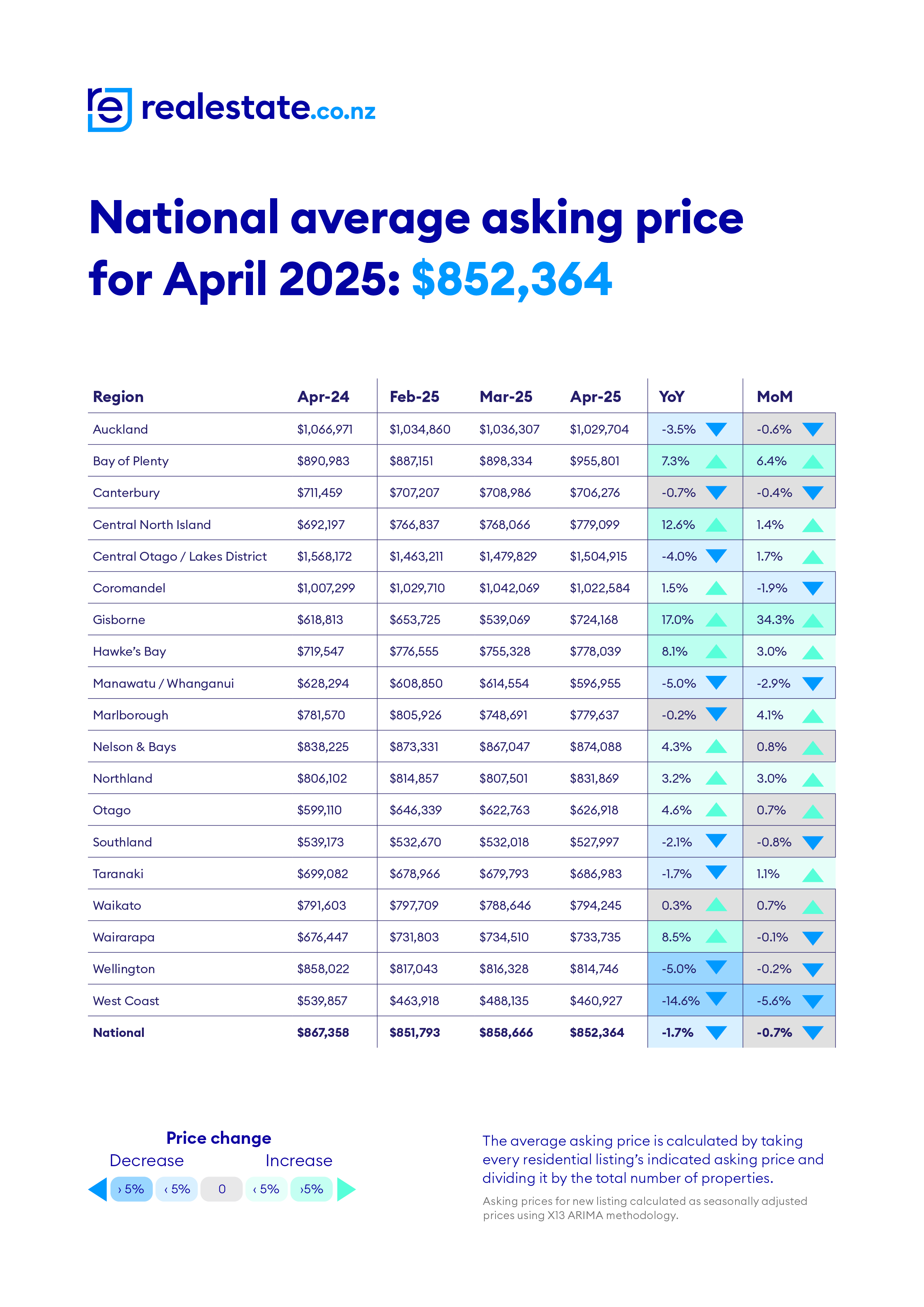Property market holding firm as buyers and sellers gain rare advantage, says realestate.co.nz

New Zealand’s property market continued to show resilience despite global economic pressures, according to the April 2025 NZ Property Report from realestate.co.nz.
While international turmoil and interest rate speculation weigh on confidence, local housing data reflects a period of rare stability, with high listing volumes and consistent pricing.
New Zealand’s broader economic recovery, however, is facing renewed headwinds as the escalating global trade war—driven by US tariff hikes and ongoing uncertainty—threatens to derail growth forecasts.
“We’re in something of a holding pen at present. With global economic turmoil, US tariffs, and employment uncertainty, New Zealand is a bit stuck as we wait to see how these pressures play out,” said Sarah Wood (pictured), CEO of realestate.co.nz.
“But there’s a silver lining: today’s well-stocked and stable property market offers buyers and sellers time, choice, and flexibility. A fast market is stressful for buyers and sellers; a slower, stable market brings real positives. If you want to have certainty around your buying and selling price, now’s a great time to make your move.”
Asking prices remain stable across the country
Despite global volatility, New Zealand’s national average asking price held firm in April.
At $852,364, prices were down just 1.7% year-on-year and continued to hover within a narrow $50,000 range that has defined the property market for over two years.
“It’s been more than two years since the national average asking price was above $900,000,” Wood said. “Over that time, prices have fluctuated by less than 6% within a tight $50,000 band. We are in a period of rare stability.”
Regional markets bucked the trend, with Gisborne (up 17%), Central North Island (up 12.6%), Wairarapa (up 8.5%), and Hawke’s Bay (up 8.1%) showing notable year-on-year price gains.

Although the national average asking price remained stable in April, realestate.co.nz previously noted that more than $63 million was cut from listing prices in Q1 2025 — a sign that while overall prices are steady, some sellers are adjusting to meet buyer expectations.
High stock levels offer strong buyer choice
National housing stock increased 6.2% year-on-year in April, giving buyers more options and contributing to the current market balance.
“There’s plenty of stock available, but we’re not seeing a boom in sales activity to move it through yet,” Wood said.
REINZ data showed a gradual rise in sales, with residential transactions increasing from 3,774 in January to 7,640 by March. However, the strong flow of listings has kept supply ahead of demand in most regions.
Seasonal dip in listings as weather cools
New listings fell sharply from March to April, down 29.2% to 8,518, in line with seasonal patterns. However, new listings were also 11.6% lower than April.
“New listings were down 11.6% compared to last year, but there is still strong interest across the market. We’re seeing the highest level of enquiries from buyers in three years. That’s a positive sign,” Wood said.
Stock surges were most pronounced in Gisborne (up 75%), Central Otago / Lakes District (28.2%), West Coast (28%), and Otago (22.4%), among other regions.
Balanced market gives both sides time and leverage
With supply outpacing sales, the current environment is neither a clear buyer’s nor seller’s market—but one where both parties can benefit.
“My advice? Visit 50 properties before you buy,” Wood said. “You need to know the market, know what's selling, and know what buyers are paying — and right now, you have the time to do exactly that.
“This market also allows buyers to negotiate terms, like longer settlement periods, and complete thorough due diligence before making decisions.”
She added that technology is improving transparency, with real-time suburb-level insights now accessible through realestate.co.nz.
Sellers also have reasons to be optimistic, especially if they’re planning to re-enter the market.
“If you accept a slightly lower sale price than your original expectations, you’re also better positioned to negotiate sharply when you purchase your next property. It’s a two-sided opportunity,” Wood said.



